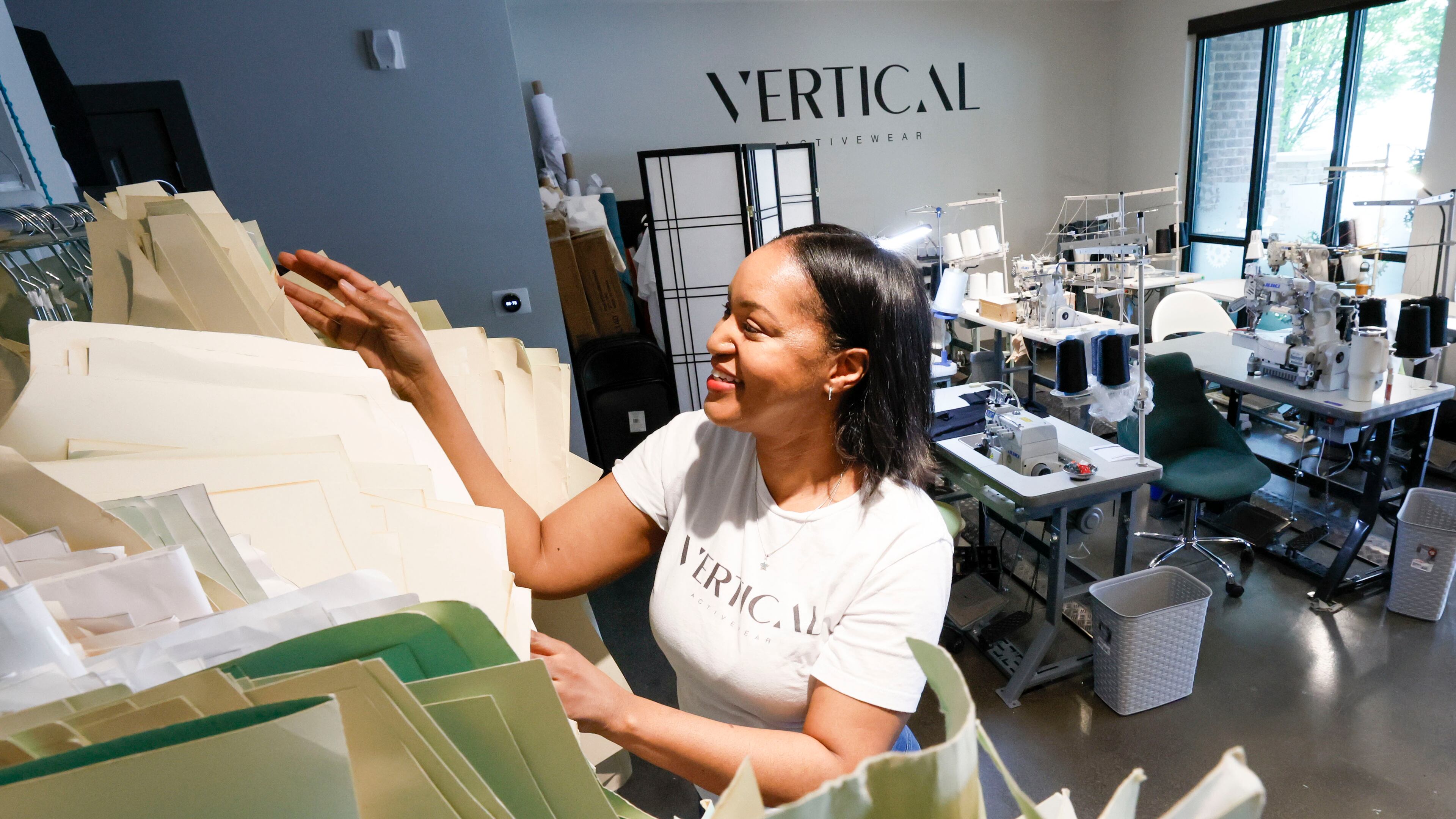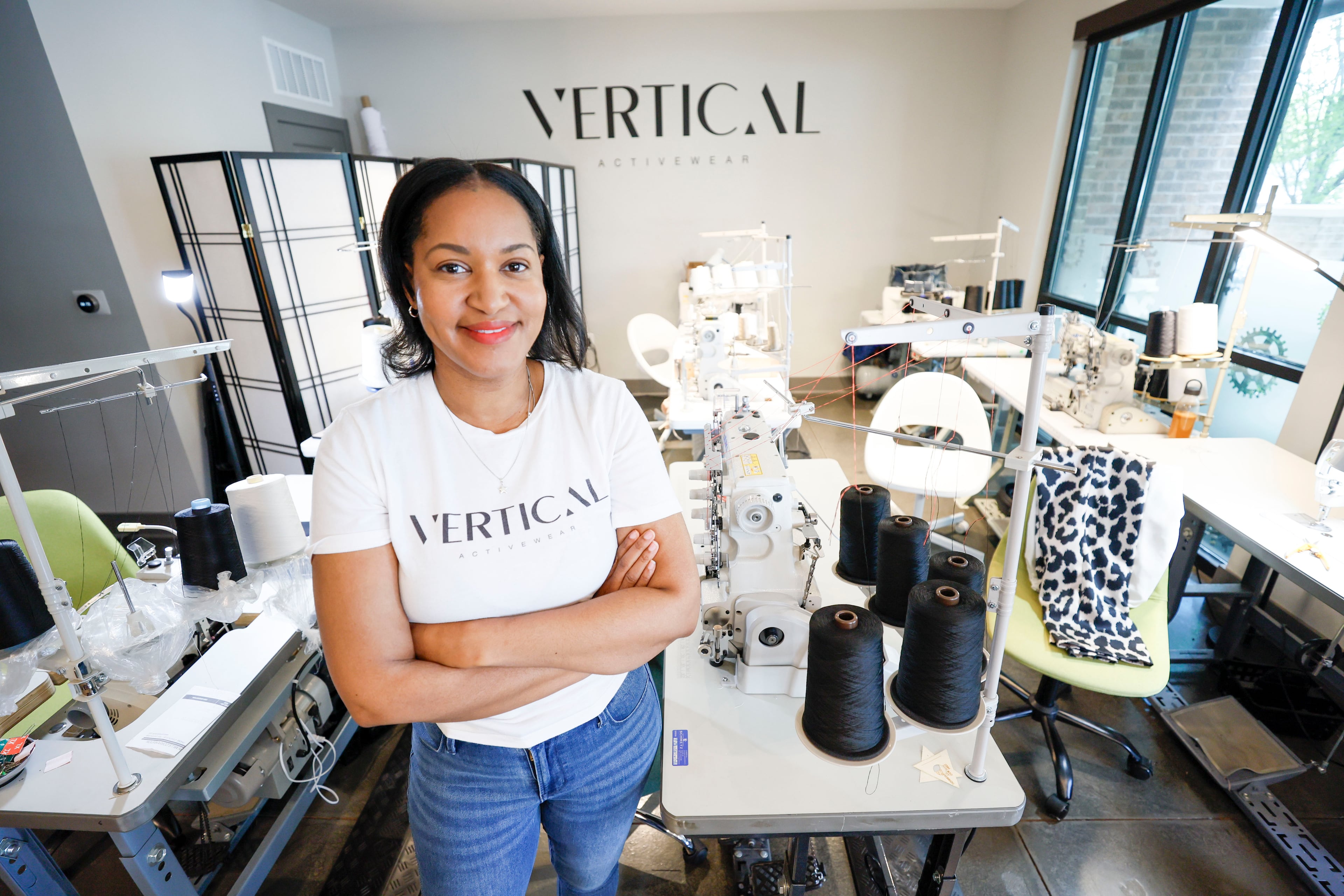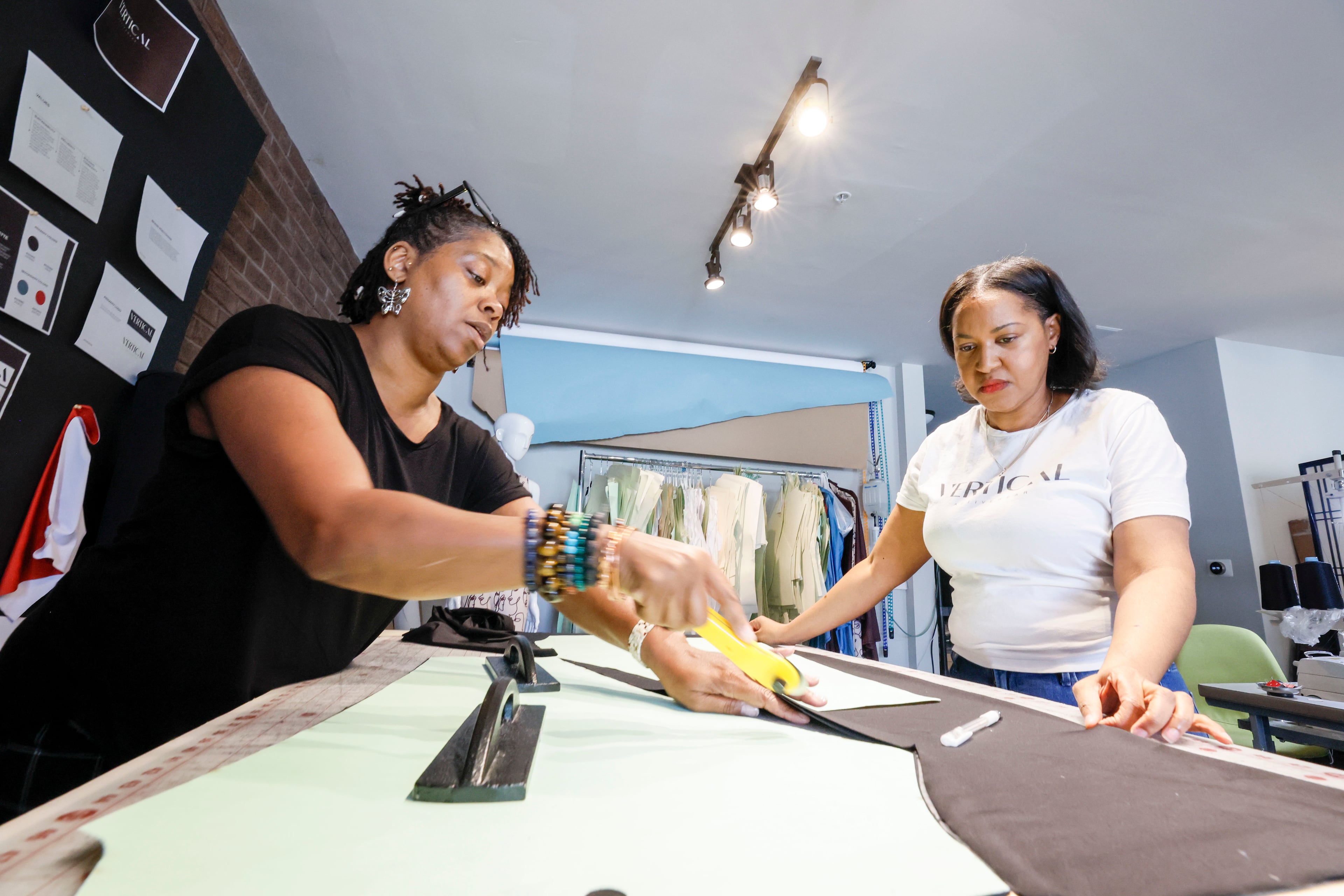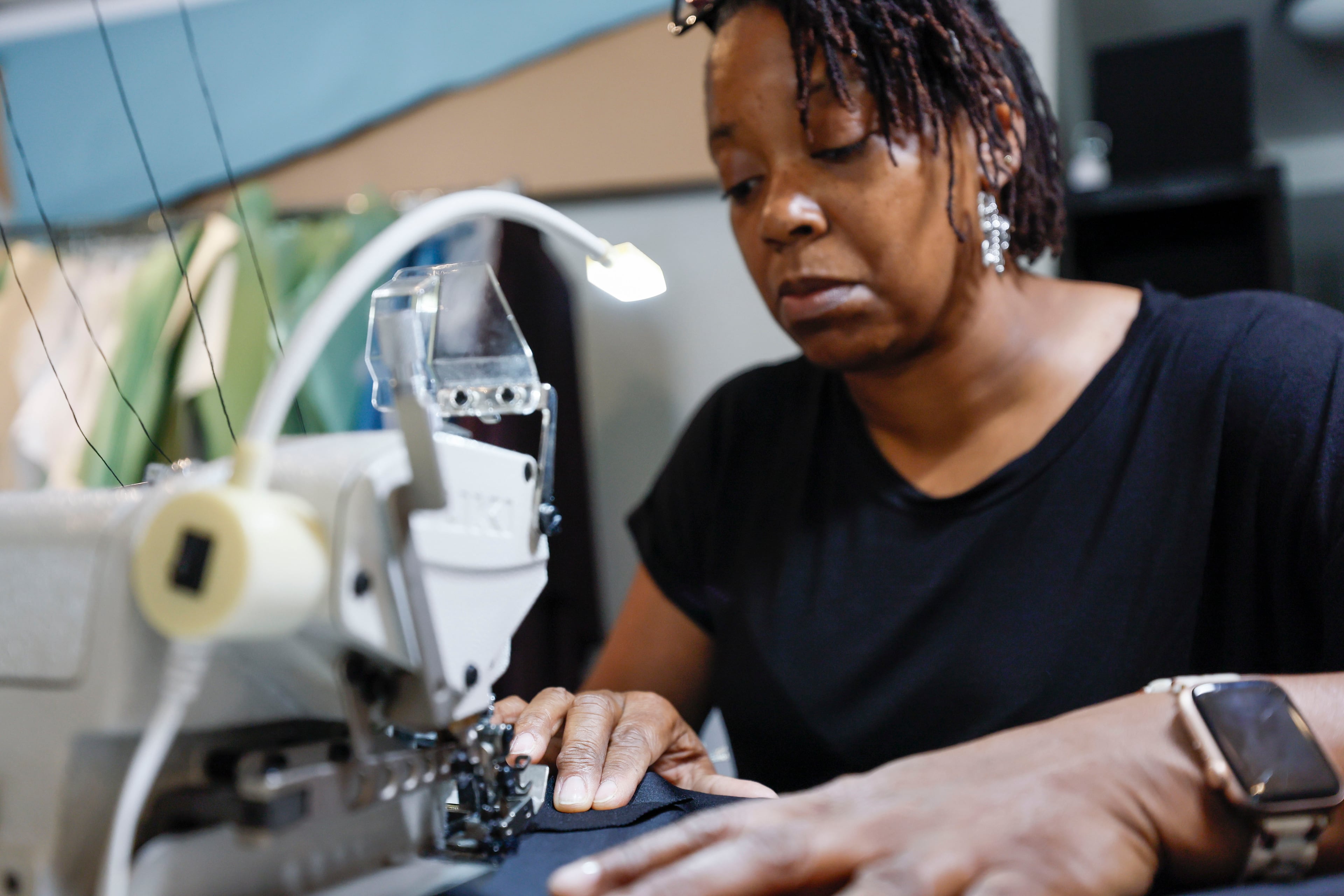Meet the Georgia manufacturers who stand to benefit from tariffs

In a quiet Duluth storefront on a busy stretch of Buford Highway, the dreams of an entrepreneur and an American president are colliding in an unlikely vessel — a pair of black leggings.
A sewing machine slowly punches a needle through the spandex that will eventually be leggings, the gentle hum filling the air of the Vertical Activewear storefront. The company is the realization of a dream of its founder, Tia Robinson, to create a sustainable apparel brand, she told The Atlanta Journal-Constitution.

Thirty miles south of her, in a warehouse near downtown Atlanta, sits Highland Forge, a custom drapery hardware manufacturer. Sparks fly as steel rods are welded while the sounds of grinding metal echo through the warehouse. Mark Woodward, co-owner of Highland Forge, stands tall among the cacophony, proudly surveying it all.
Robinson and Woodward are the types of Americans that President Donald Trump has said he’s instituting tariffs for: domestic manufacturers. They are both about as “Made in America” as can be.
Robinson sources all her fabric from American mills. Her designs and colors are inked into the textiles at American factories. Thread and zippers are essentially the only things not sourced domestically. At its busiest, her team can produce 750 garments a week.
At Woodward’s facility, his products are made from raw or stainless steel from American mills. Then the cutting, welding, polishing and powder coating of the curtain rods, brackets, rings and finials is done in Atlanta.

Robinson and Woodward are benefiting from tariffs in different ways, showing how Trump’s varying strategies have resulted in uneven outcomes for entrepreneurs.
Just hours into his second term, Trump announced tariffs on imports from Mexico and Canada, setting the tone for the next six months of his administration. Since then, Trump has announced a range of import taxes on specific goods as well as more than 180 countries.
He’s used the threat of tariffs as a cudgel to change countries’ behavior as much as a tool to shift global supply chains and trade balances. Some tariffs have gone into effect, but many haven’t. Many of the pauses are set to expire Aug. 1, when Trump said tariffs as high as 50% on dozens of countries and copper will go into effect.

Trump already in March instituted 25% tariffs on raw steel and products derived from steel. When Woodward heard about the import taxes his first thought was, “I’m so glad that we’re made here in the USA,” he said.
Woodward has helmed Highland Forge since 2021 when he and his business partner Ford Kinzey bought the company. The tariffs have been “a great tailwind,” Woodward said. His competitors had to raise their prices but he didn’t.
New clients are telling Woodward that they started looking for alternative suppliers after the tariffs went into effect. Highland Forge’s sales from March through June this year were up more than 40% compared with last year. He’s added two positions to keep up with demand.

But for other entrepreneurs, like Robinson, the constant shifts of Trump’s tariff policies have created a lot of uncertainty.
Robinson launched the first iteration of Vertical Activewear in 2012, initially manufacturing overseas. But that was ”a nightmare” of quality control issues, she said, and she eventually stepped away from the business.
Yet the call to entrepreneurship didn’t quiet. She launched her American-made iteration of Vertical Activewear in December 2019, manufacturing her own line of apparel as well as for other companies.
Since Trump announced tariffs, the number of visitors to her site has increased by about 145%, Robinson said, with one day in late February seeing a 700% increase in traffic compared with early January.

But that hasn’t fully translated into sales. Though she has gotten a few new clients, many are holding off changing supply chains until policies are more settled, Robinson said.
“We’ve had a handful of serious inquiries,” she said. But since the surge of inquiries, “things have kind of cooled off a little bit.”
“They’re kind of waiting and trying to figure it out,” she said.
Robinson is not alone. Tariffs are causing uncertainty for business owners, said Michelle Dennard, vice president and regional executive in the Jacksonville branch of the Federal Reserve Bank of Atlanta.
“Many businesses are choosing just to put things on hold for a bit until they can better see through what the implications of tariffs can be,” Dennard said.
If all of Trump’s tariffs are eventually implemented, Robinson is bullish about what they could mean for her business. But she says she could have trouble finding skilled workers to meet the potential demand. She was able to find Veronica Chapman, Vertical Activewear’s lead sewist and “miracle,” to help make her dream a reality, Robinson said.

Chapman learned to sew when she was young and has since worked for brands like Spanx, Nike and Disney (she makes the capes sold at the Bibbidi Bobbidi Boutiques). But finding someone as experienced as Chapman is rare. Robinson said about two generations of sewers have been lost because of offshoring.
“Mm-hmm,” Chapman murmured in agreement.
For Woodward, finding reliable, detail-oriented workers has been a challenge. But without more workers, the company won’t be able to scale.
“The limiting factor for us is like, it’s a niche business,” Woodward said. “So it’s rare that you’re going to find somebody that has this direct experience... We’ve got a unique set of fabrication techniques.”

He has been working with local technical colleges to try to find workers, because Woodward has plans. He hopes to hire at least one more fabricator this year and next year wants to expand to start making custom fireplace screens, if the company can get caught up on the current demand spurred by tariffs.
Back at Vertical Activewear, the sewing machine making the black leggings slows and the pair is done for now. Eventually, Robinson will tag and ship them, the physical representation of her dream sent into the world. Whether the changes wrought by tariffs will spur a surge in her business has yet to be seen.



